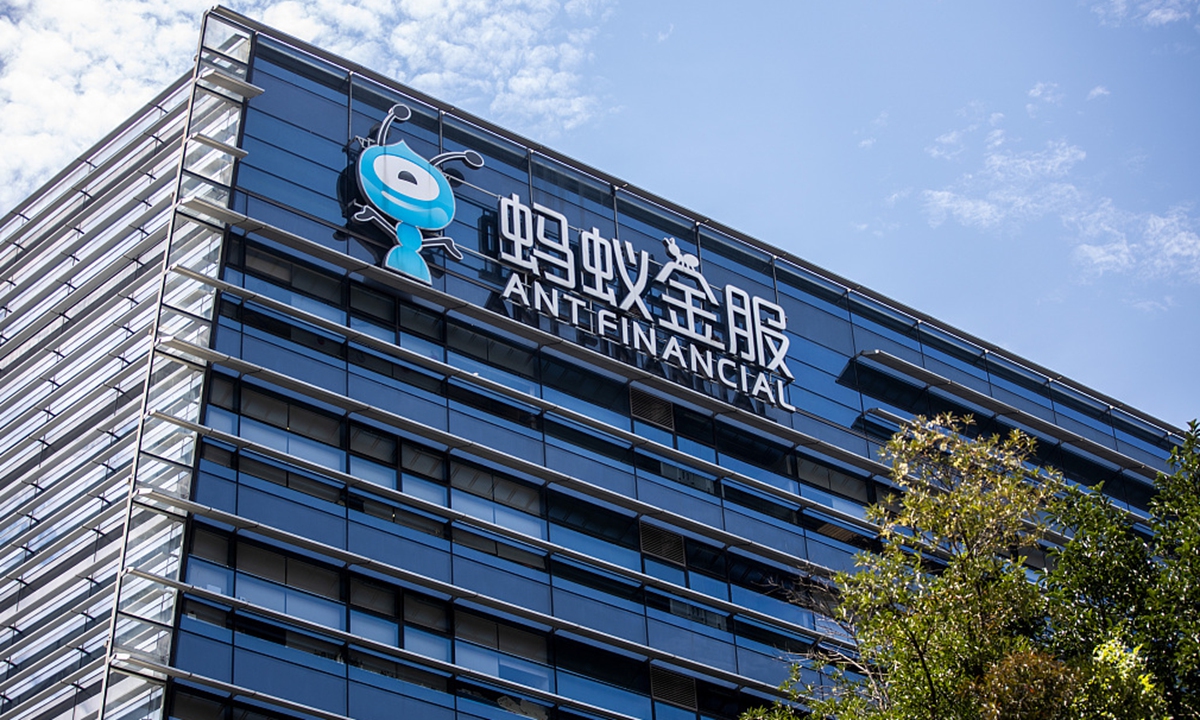IPO's pause a responsible move to avoid Ant Group's hasty listing amid regulatory changes: CSRC
Source: Global Times Published: 2020/11/4 23:28:10

Ant Group Photo:VCG
The suspension of Ant Group's potentially record IPO is hailed as a responsible move to avoid the fintech giant's hasty listing amid pending major regulatory changes, China's securities regulator said late Wednesday.
The move indicates the spirit of revering the markets and the rule of law which bodes well for the long-term development of the nation's capital market and enhance investor confidence in the market, reads a late-night statement by the China Securities Regulatory Commission (CSRC).
The statement crystallizes CSRC's stance on the pause of what was expected to be the world's largest listing two days after it posted a notice that Ant Group's "actual controller" and top management had been summoned for a talk by the nation's financial regulatory authorities.
Just days after the talk with regulators, the Chinese vanguard fintech company that had geared up for a record-shattering dual listing in Shanghai and Hong Kong has taken a surprising turn: its IPO offerings in both bourses have been put off and both institutional and retail investors are seeking refunds of their bids for Ant's shares.
The suspension of Ant's listing on the STAR Market was a decision by the Shanghai Stock Exchange in accordance with laws and rules, said the CSRC statement on Wednesday.
The regulatory summon and recent changes in the fintech regulatory environment might have a major impact on Ant's business structure and earning models, which were seen major pre-IPO issues, the securities regulator said.
The Shanghai bourse made the suspension decision according to management rules of a registration-based stock issuance on the STAR Market, in a bid to protect legitimate rights and interests of investors, ensure fully transparent and accurate information disclosure and uphold a fair and equitable market, read the CSRC statement.
The securities regulator said it supports the Shanghai bourse's decision and will maintain communications and cooperation with the Securities and Futures Commission of Hong Kong and securities regulatory bodies in major overseas markets to iron out the remaining issues.
Global Times
Posted in: COMPANIES